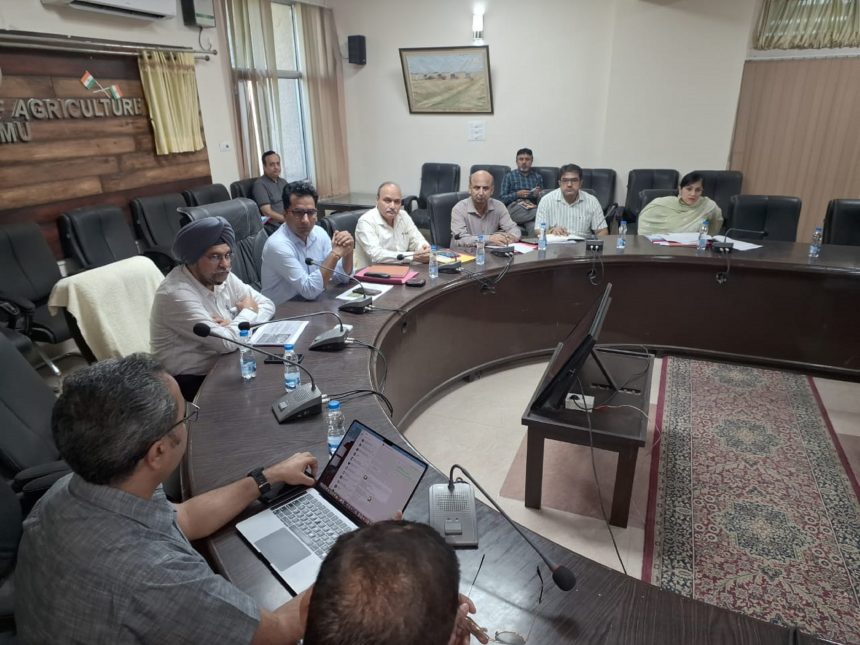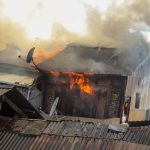Jammu, May 14: Secretary of the Agriculture Production Department, J&K and Mission Director of the Holistic Agriculture Development Programme (HADP) Sandeep Kumar Wednesday chaired a comprehensive review meeting to assess the progress of various components under HADP.
The meeting took place at the Conference Hall, Directorate of Agriculture, Krishi Bhawan, Talab Tillo, Jammu. The review session was attended by Project Grounding and Monitoring Committees, Directors of Agriculture, Horticulture, Animal Husbandry, Fisheries, Sericulture, and Sheep Husbandry from both the Jammu and Kashmir divisions, along with representatives from SKUAST-Jammu and SKUAST-Kashmir. Officers from the Kashmir division participated virtually. Key agenda items included a review of actions taken on decisions from previous meetings, submission of training calendars, and updates on farmer training initiatives. Progress reports were also shared regarding the Daksh Kisan Portal and the Kisan Sathi Portal, specifically relating to course completion and farmer registration, respectively. During the meeting, Kumar directed all departments to fast-track the implementation of assigned tasks and ensure strong inter-departmental coordination for effective execution of development projects under HADP. A detailed review of all ongoing projects was conducted, with the Mission Director instructing concerned officers to adhere strictly to project timelines and objectives. He laid particular emphasis on strengthening the agricultural marketing system to improve the sale and distribution of produce, including the development of infrastructure for marketing fruits and vegetables. In the livestock sector, the Mission Director stressed the importance of improving animal health, advancing breeding programmes, and promoting value addition through various schemes under HADP. Special focus was given to the area expansion of millets under the Promotion of Nutri-Cereals (Millets) project. Kumar highlighted the significance of Research and Development (R&D) in this area and called for the conservation of traditional landraces and indigenous varieties.








